|
|
|
Editor's note
|
|
The message from the world’s top scientific body on climate change, the IPCC, earlier this month was grim but emphatic. The world has little over a decade to keep global warming in check and avert an environmental disaster that would make living in many parts of the earth intolerable.
But are Americans, the second largest producers of carbon dioxide in the world, listening?
They should be. As Fairbanks-based researcher Nancy Fresco puts it, “For everyone from the National Park Service to the military, from the oil industry to city managers to traditional hunters, adapting to climate change is the new reality in Alaska.” And across the U.S., rising temperatures are already affecting Americans’ health and bringing mosquitoes and ticks carrying diseases like dengue fever and the Zika virus to suburban backyards.
These are urgent issues that affect us all. This is why Conversation editors coalesced around the idea of devoting a special newsletter tapping the work of scholars who study the many aspects of climate change – from how it’s already affecting us on the ground to how it’s taught (or not) in high school and the role insurance costs may play in changing hearts and minds.
This week also marks the fourth birthday of The Conversation US. From humble beginnings with a newsroom of seven in a basement at Boston University, we are now a newsroom of 19 spread across five cities. For me as editor, these four years have been an exciting and deeply gratifying experience – as we’ve worked with thousands of academics to share their expertise and insight with the public and seen an ever-growing readership for our unique model of evidence-based, trustworthy journalism.
Today’s offering exemplifies what The Conversation is all about. You’ll be hearing from the experts – people who’ve spent years if not decades researching their topics. The stories they author are distinctive and some are counterintuitive. All of them are underpinned by evidence you can check out yourself. And each and every one of these articles goes through a rigorous editing process that includes transparency about any relevant funding or non-academic affiliations.
I hope you will find today’s reading stimulating and useful – as always, we welcome your feedback.
|
Maria Balinska
Editor and Co-CEO
|

|
|
Economics + Business
|
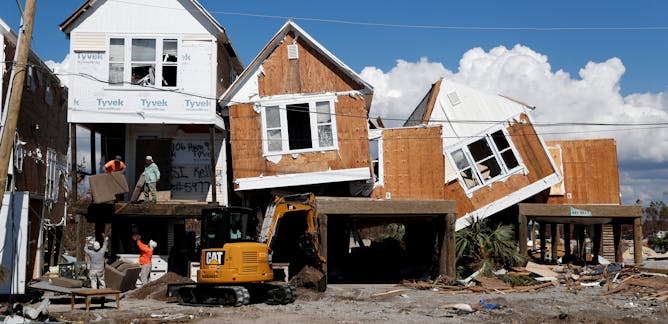
Andrew J. Hoffman, University of Michigan
Convincing people to see and appreciate the threats posed by climate change is one of the great challenges of our day. Insurers may be able to succeed where scientists and educators have failed.
| |
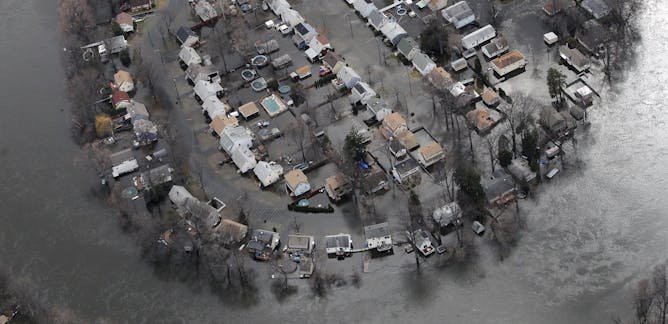
Constantine Yannelis, University of Chicago; Lorenzo Garlappi, University of British Columbia; Markus Baldauf, University of British Columbia
Coastal real estate prices appear to be taking a hit, but mostly in neighborhoods with more climate change believers.
|
|
|
Health + Medicine
|
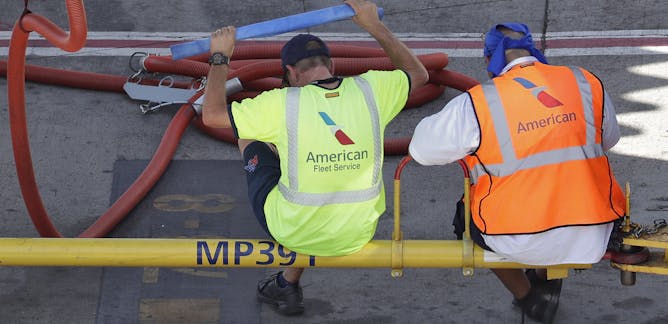
Elena N. Naumova, Tufts University
Rising temperatures will not only hurt people in the future. Many are feeling the effects now. Those who work outdoors, those who have certain chronic conditions and the elderly are vulnerable.
| |
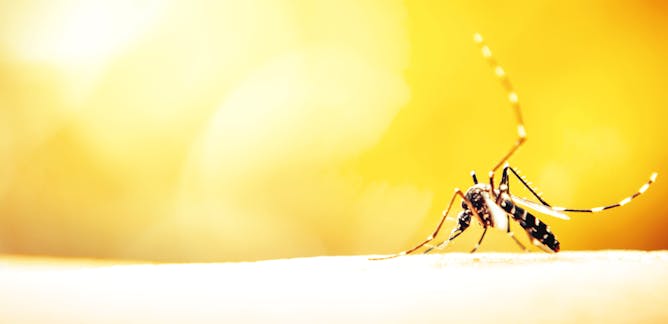
Oghenekaro Omodior, Indiana University; Daniel Becker, Indiana University
Is our changing climate making regions of the US more suitable for ticks and mosquitoes that spread diseases? Or is the climate changing human physiology making us more vulnerable?
|
|
|
Politics + Society
|
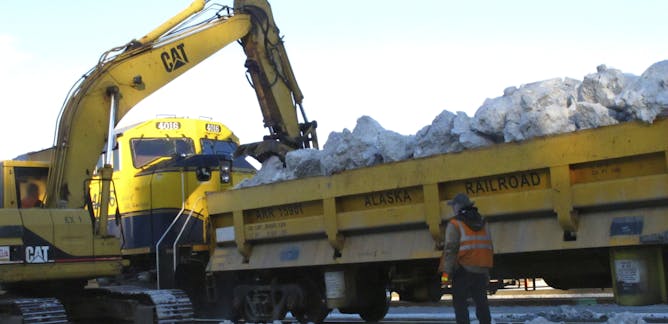
Nancy Fresco, University of Alaska Fairbanks
For everyone from traditional hunters to the military, the National Park Service to the oil industry, climate change is the new reality in Alaska. Government, residents and businesses are all trying to adapt.
| |
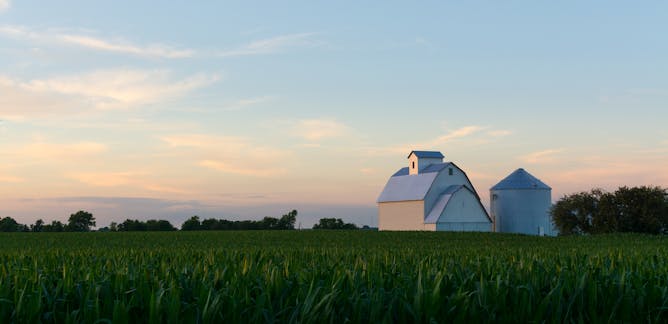
Matthew Houser, Indiana University; Andrea Webster, Indiana University
Conservative skeptics of climate change may support projects focused on 'resilience' – for example, preparing a community for future major weather events.
|
|
|
Environment + Energy
|
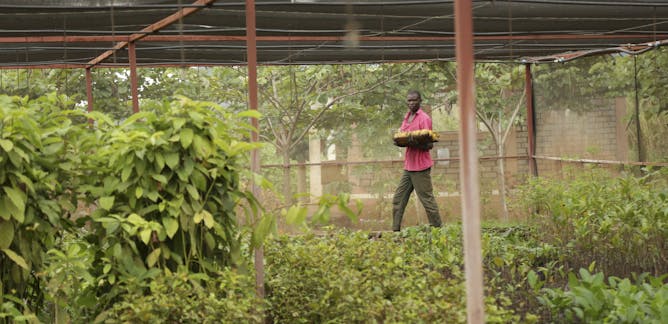
Jessica Eise, Purdue University; Kenneth Foster, Purdue University
After declining for nearly a decade, the number of hungry people in the world is growing again. Climate change, which is disrupting weather patterns that farmers rely on, is a major cause.
| |
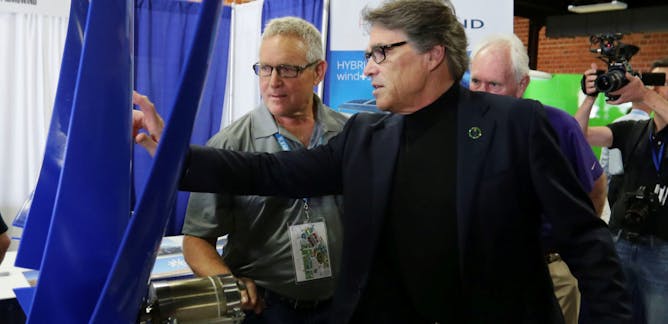
Sarah Mills, University of Michigan
There are some good explanations for the mismatch between regional support for climate action and the areas where renewable energy is making the biggest inroads.
|
|
|
Science + Technology
|
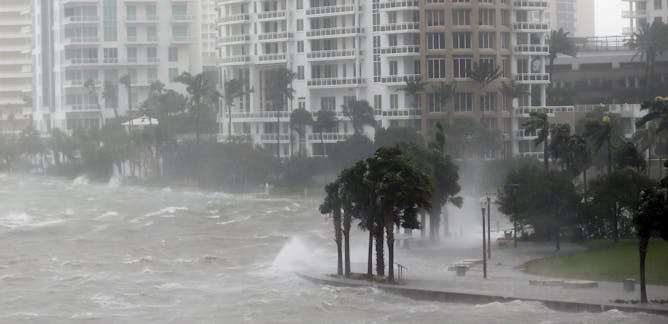
Mikhail Chester, Arizona State University; Braden Allenby, Arizona State University; Samuel Markolf, Arizona State University
Infrastructure systems – roads, water treatment systems, power grid – can't be built the same ways as in the past. What's a better roadmap for the future?
| |
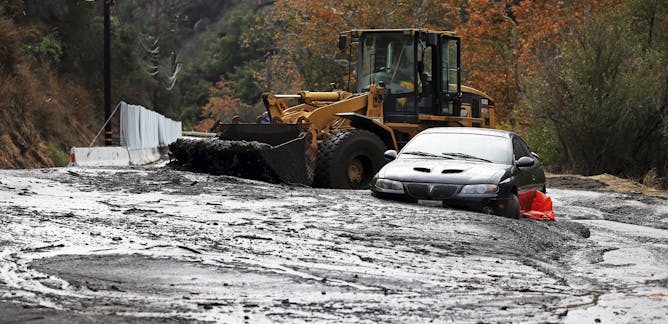
Farshid Vahedifard, Mississippi State University; Amir AghaKouchak, University of California, Irvine
One natural disaster can exacerbate the effects of others – think landslides after wildfires. This means engineers and planners need to rethink how they assess and prepare for risk.
|
|
|
Education
|
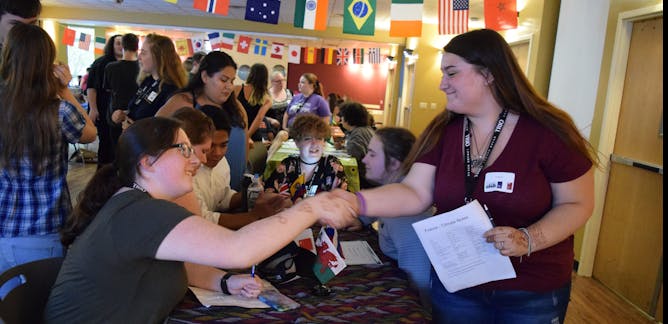
Juliette N. Rooney-Varga, University of Massachusetts Lowell
In the 'World Climate' simulation, people play delegates to UN climate negotiations and work to strike an agreement that meets global climate goals. Playing it has made thousands want to take action.
| |

Brett Levy, University at Albany, State University of New York; Lauren Collet-Gildard
Some popular high school textbooks have used hesitant language to describe human contributions to climate change, our study shows.
|
|
|
Most read on site
|
-
Luís Fernando Tófoli, Universidade Estadual de Campinas; Dráulio Barros de Araújo, Federal University of Rio Grande do Norte (Brazil); Fernanda Palhano-Fontes, Federal University of Rio Grande do Norte (Brazil)
Ayahuasca has long been used for indigenous healing and spiritual rituals. Now, a Brazilian clinical trial has confirmed that this psychoactive drink can help those with even severe depression.
-
Gabriel Neal, Texas A&M University
Does it seem like everyone you know drinks apple cider vinegar, mainly in hopes of losing weight? Vinegar has a long history of high hopes attached to it. A doctor who loves vinegar explains.
-
Frank T. McAndrew, Knox College
Many are embarrassed to publicly show too much grief over the death of a dog. But research has shown just how devastating the loss can be.
|
|
Today’s chart
|
-

 |
Sarah Mills
University of Michigan
|
| | | |
| |
|
|
|
|
|
|
|